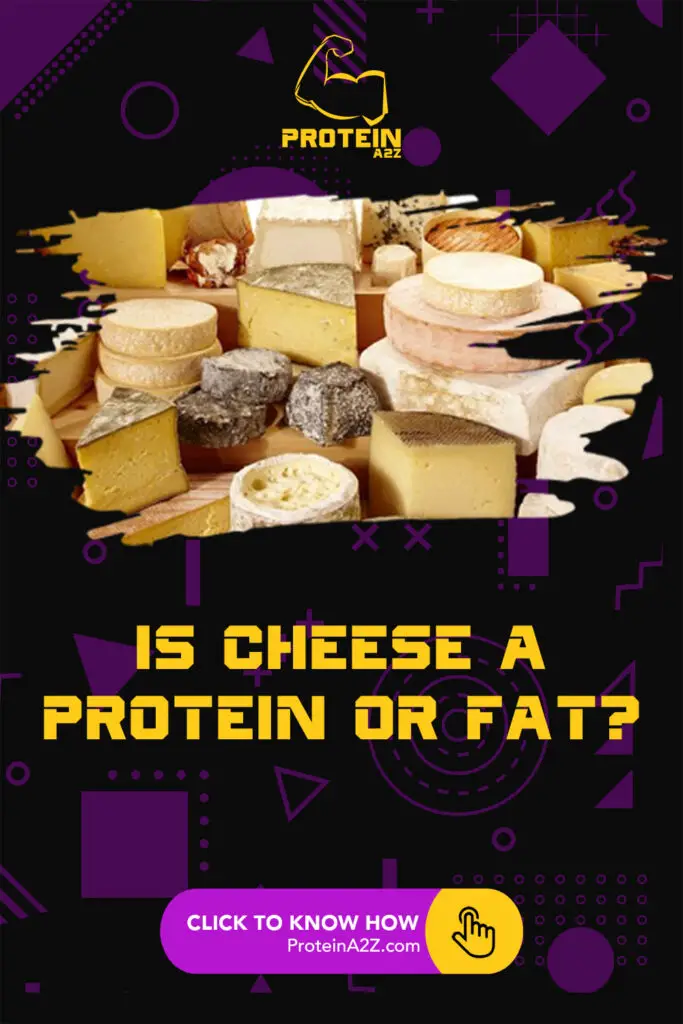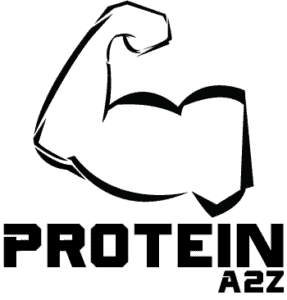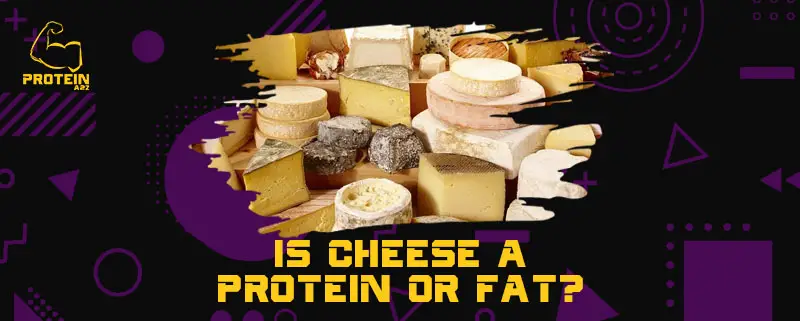Both! Cheeses are a high source of both protein AND fat.
Table of Contents
Cheese is a good source of protein
As cheese is a dairy product, it is naturally a great source of protein. You can make cheese by curdling milk into solid curds and liquid.
When the liquid separates from the curd, this is whey protein. This is the same type of whey protein you see used in so many types of protein powder.
However, cheese is made from solid curds, which are made of casein protein. Casein is different than whey because it’s a slow-digesting protein. Whey, on the other hand, digests quickly.
This is why some people who use protein supplements like to mix both why and casein, since the digest at different rates.
Read this too: How good of a protein source is cheese?
Watch out for the fat in cheese
We must realize that cheese is a dairy product made from the milk of various mammals. The natural purpose of milk is to be a nutrient-rich liquid for offspring. Therefore, cheese contains a good amount of fat as this fat is intended to provide babies nutrition for growth.
However, cheese can be high in saturated fat, which is the fat that is generally associated with clogged arteries and other various health ailments. Therefore, you need to be cautious about the amount you eat as. Eat cheese in moderation or opt for healthier versions, such as “low-fat” cheese.
Nutrients in different types of cheese
Cheeses are generally divided into 7 categories of cheese such as “hard”, and “soft”. Then, within these types, there are dozens of types of cheese. That’s a lot of cheese in the world, and every cheese has a different make-up of macro-nutrients.
Let’s look at the make-up of some more common cheeses per 100g
- Mozzarella– Protein: 22.4, Fat: 22.4, Carb: 2.2
- Cheddar– Protein: 24.9, Fat: 33.1, Carb: 1.3
- Feta– Protein: 14.2, Fat: 21.3, Carb: 4.1
- Swiss– Protein: 26.9, Fat: 27.8, Carb: 5.4
- Cottage– Protein: 11.1, Fat: 4.3, Carb: 3.4
Water makes up the remaining amount of weight that is not accounted for with the macros. As you can see, when looking at weight, some of these cheeses are about equal in quantity while some favor either fat or protein. However, being that fat has more than twice the calories, all of these cheeses get more calories from fat than they do protein, except for cottage cheese.
A healthy snack
Cheese can be a healthy snack to enjoy between meals, as long as you keep in mind the fat content. While it may not be the best choice to simply munch on cheese, a delicious snack is to top some crackers with meat and cheese. The added meat can add to the protein content and give you a delightful little bit to eat with yummy cheese.
FAQs about cheese
What has more protein, milk or cheese?
When looking at protein content compared to calories, cheese and milk have about the same amount of protein with slightly more in milk. If you compare weight-wise, cheese has significantly more.
Can I add cheese to eggs?
Adding cheese to eggs is a great way to increase your protein intake even more. Three eggs with some cheese thrown on it will quickly get you over 20 grams of protein. There are plenty of delicious recipes that combine eggs and cheese, from a simple scrambled egg with shredded cheese on it, to a yummy frittata.
How much protein should I consume?
If you are an average individual, the RDA for protein is 0.8 grams per kilogram of body weight. You should eat more, around 1.4-2.0 grams per kilogram, if you are athletic.

User comment about cheese
Cheese – The Ideal Pre-Workout Food
Cheese, the product that started way back from the prehistoric age and remains unchanged to this day, has been one of mankind’s most important sources of nutrition, for as long as man has been cultivating animals and plant life for milk, cereals, and other products with which to nourish them. The early Egyptians may have been the first to cultivate cheese, as attested by their mummies and paintings found in tombs from Khamer, especially in their capital city, Neco.
Later on, Romans, Saxons, and even Vikings developed the art of cheesemaking, and soon after that, Frenchmen and Englishmen developed pungent and sweet strains of cheese to produce some of the finest and most popular varieties today. As a result, cheese has become one of the world’s most popular dairy products, with over sixty percent of the United States population saying they consume cheese at least weekly.
Cheese is better than other dairy produtcs
Cheese, unlike most other dairy products, is high in protein and low in fat. The fat content of a single ounce of cheese is only about two calories, whereas a single ounce of milk can pack quite a wallop of nearly sixty calories. Cheeses are rich in calcium and vitamins A, B, and C, and a calcium-rich dairy product such as cheese is also a good source of iron. This fact makes cheese protein rich and nutritious, making it a suitable addition to any diet.
Cheese is also one of the healthiest foods you could ever eat, since it consists mostly of healthy fats, with only a small amount of saturated fat. This makes cheese protein rich and a worthy addition to your regular diet. In fact, a single ounce of cheese contains more protein than an entire serving of red meat. A single ounce of cheese contains about eighteen grams of protein, a little less than an egg. Thus, cheese protein is a very good choice for those trying to slim down and stay healthy, since it is very low in fat and just right in terms of nutrition.

